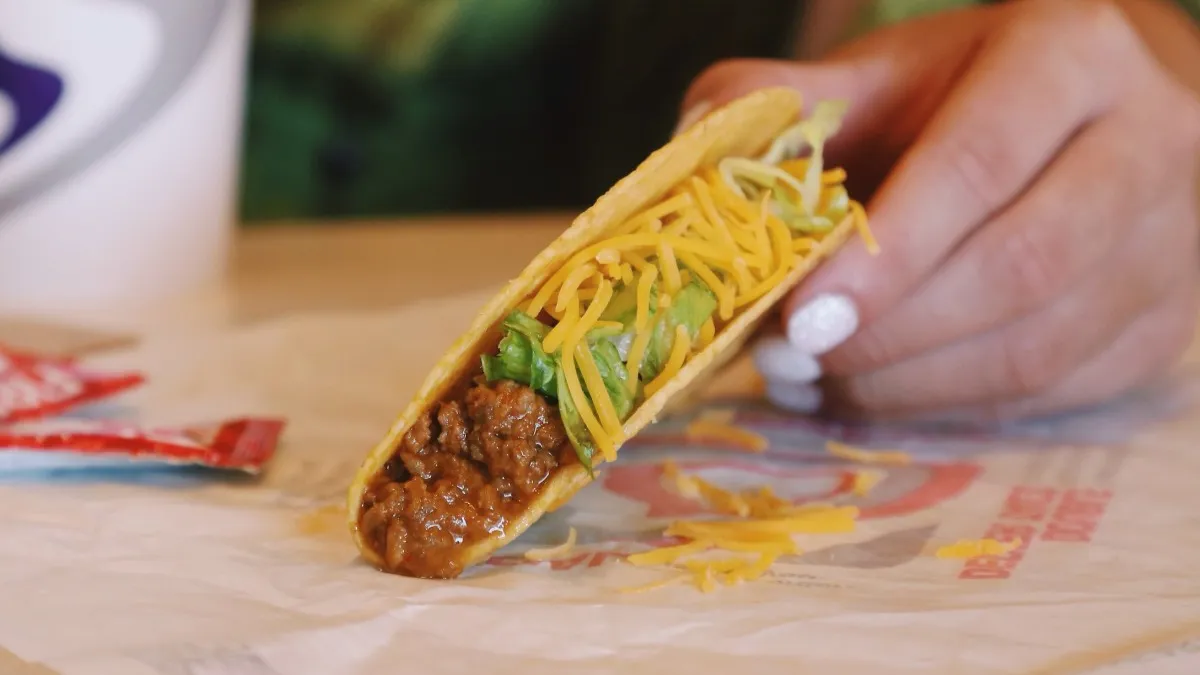Dive Brief:
- Taco Bell has pledged to make its packaging recyclable, compostable, or reusable at locations worldwide by 2025, according to a press release. The new materials will be free of PFAS, phthalates and BPA.
- This includes any material that comes into contact with the consumer, such as wraps around tacos or the boxes provided with the $5 Cravings Box. Taco Bell is still working on what the new packaging will look like but hopes to preserve as much brand identity as possible, according to Fast Company.
- As part of the effort, Taco Bell will also install recycling and composting bins at restaurants "where infrastructure permits."
Dive Insight:
Taco Bell is ramping up its sustainability initiatives alongside a few other quick service restaurants (QSRs) that are making commitments to cleaning up their packaging. Along with sister companies KFC and Pizza Hut, it is part of the NextGen Consortium, a group of companies researching packaging alternatives.
At the store level, Taco Bell has been working on swapping in paper straws at locations subject to new laws banning plastic straws, according to Fast Company. The fast food chain is providing training materials to employees to better educate them about how certain materials should be discarded. Many of the items it already uses for packaging are recyclable or compostable, Missy Schaaphok, Taco Bell’s global nutrition and sustainability manager, told Fast Company, adding that the focus will be on packaging that isn't recyclable or compostable.
But consumers seem willing to pay more for less plastic and are growing more concerned about the number of single-use items in the restaurant industry. Nearly half of consumers seem to consider the sustainability of their dining choices when choosing a fast food restaurant, but only about one-third think that QSRs are doing a good job of labeling items for proper disposal. Taco Bell's decision to educate its employees about proper disposal could go a long way toward garnering favor with eco-conscious consumers compared to other QSRs that merely announce material swaps.
McDonald's has been testing sustainable packaging solutions as well, recently announcing a new partnership with Ford to turn coffee grounds into car parts and running a 10-day pilot of a plastic-free store in Germany that featured edible packaging. It also launched two Green Concept stores in Canada to serve as incubators for new ideas about reducing packaging waste.
In New York, Dig piloted a reusable bowl program facilitated by a mobile app that enables users to pay $3 per month to rent and return containers, while Dunkin', Starbucks and McDonald's are leading sustainable cup initiatives to reduce coffee cup waste. Uber Eats is also allowing users to choose whether to receive single-use plastics like straws and utensils with their takeout orders.










